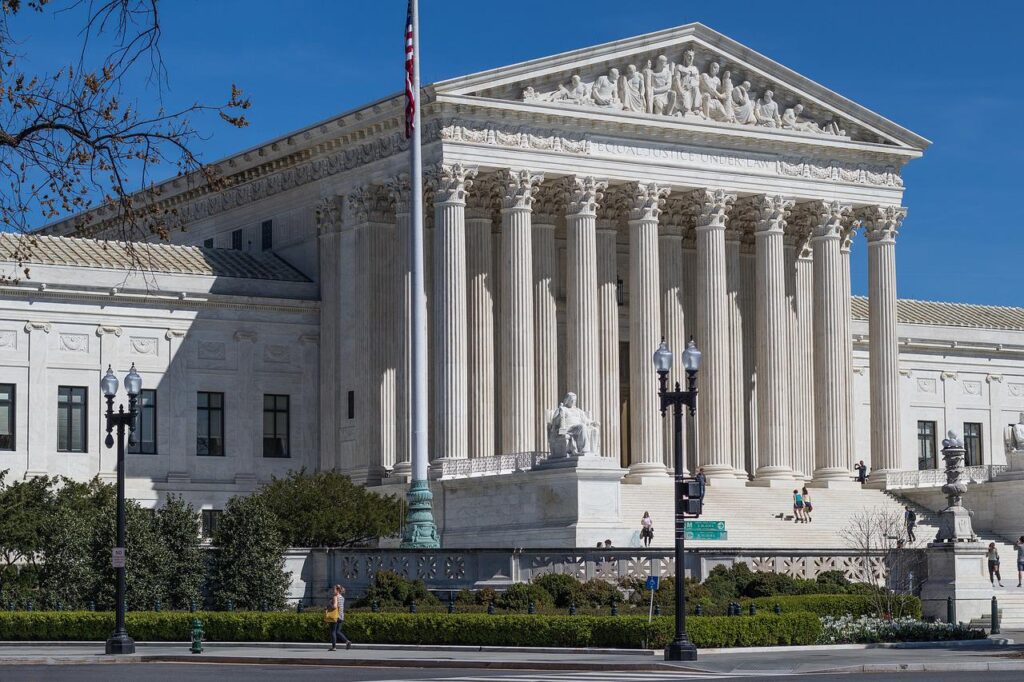Supreme Court Is Redefining The Meaning Of What Legally Constitutes As A Threat
The Supreme Court will soon decide on when a threat is deemed a “true threat” after recent cases have brought into question what deems as a threat.
This article is more than 2 years old

The U.S. constitution stands to protect citizens and their freedom. However, when it comes to threats, there is an unclear standard to what constitutes one. Now recent cases have brought into question what deems as a threat when it comes to the U.S. Supreme Court.
The Supreme Court will decide on Wednesday on when a threat is deemed a “true threat”. This question has never been specificed in a legal setting and will likely set a precedent following the Supreme Court’s findings. As with any legal issue, there is a lot to be considered.
This case is based on stalking. Billy Counterman was previously convicted and sentenced to prison for stalking Coles Whalen, a Coloradan singer and songwriter. Now it’s come to light that there could be even more effects of the threatening messages Counterman sent to Whalen.
Counterman began sending messages on Facebook to Whalen in 2010. He continued to send messages through 2016, escalating in manner. NPR notes that police believe he had sent over a thousand messages to her.
The case calls into question the extent of the United States First Amendment. Was Counterman merely expressing his constitutional right by sending threatening messages or are they considered a “true threat”, which is not protected by the First Amendment. The case will decide whether or not the messages would be deemed a threat of violence to a reasonable person according to SCOTUSBlog.
The First Amendment to the United States Constitution is part of the Bill of Rights and protects several fundamental rights. This includes freedom of speech, religion, the press, assembly, and petition. The question of whether Bill Counterman is protected under that right comes into consideration.
Whalen believes that the threats made by Counterman had life-altering consequences. She also asserts that it upended her musical career forcing her to step back from her dream which she had worked so hard to build. This shows that there was lasting harm from Counterman’s actions.
Counterman asserted that it’s frightening that someone can be sent to jail over a “speech crime” committed by accident, reports the SCOTUSBlog. He further argued that there is no precedent for criminal liability for speech not intended as a threat. The stalking case, which was previously judged in Colorado court, found that irrespective of the intentions of the threats, “the damage is the same”.
NPR says that the lawyer for Counterman in the Supreme Court, John Elwood, said that Counterman is diagnosed with a mental illness. He apparently didn’t know what he was doing when he was scaring Whalen. He also said the question is what the speaker intended and not what the person receiving the message might think.
In an interview with NPR, Whalen mentioned that Counterman believed he was in a “romantic relationship” with her, stating that he was “seeing her in person, without her knowing.” Messages to her also included threats to “die, don’t need you”, according to this Supreme Court document. This along with Counterman’s actions and thousand other messages, understandably, led Whalen to fear for her safety.
Ultimately, Whalen is grateful she reported Counterman and what law enforcement has done for her, according to her website. She hopes that her case will help other victims and their families across the country from stalkers. The result of the case and what the U.S. constitutes as a “true threat” remains to be seen.



